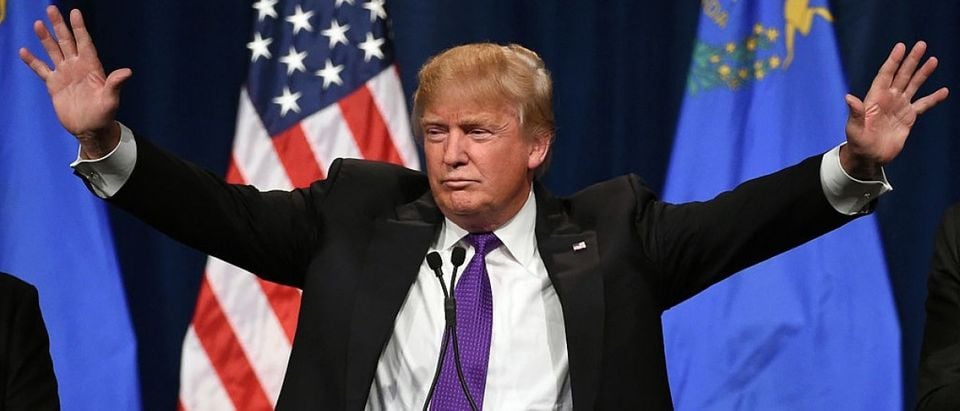It happens every presidential election cycle. Campaigns desperate to gain traction are tempted by the idea of picking “outside the box” running mates that are too clever by half.
The 2016 “creative ticket” season was launched on Sunday when conservative radio star Laura Ingraham floated the idea of Republican frontrunner Donald Trump tapping establishment darling Marco Rubio to be his vice presidential candidate. The logical thinking is that the populist insurgent needs to do something to calm the elephant herd and unite the party by offering this as a compromise to GOP leaders.
Laura’s trial balloon is consistent with the reasons why Ronald Reagan picked Daddy Bush to be his veep in 1980. The moderate Republican hierarchy was unenthused with the conservative Californian as its standard-bearer so tapping the preppy runner-up who won 24 percent of the primary vote helped get the old guard on board for the then-uphill general election fight against incumbent President Jimmy Carter.
There are two major differences between the Reagan-Bush and Trump-Rubio tickets, however. The first is that George H.W. Bush won seven contests in 1980, including the Iowa Caucus, so had proven he could be an asset on the stump. So far in 2016, despite spending more money than everyone except Jeb Bush, Rubio hasn’t won anywhere and is even losing his home state of Florida to Trump by between 7 and 23 points.
The other hitch is that the angry mob that’s fueling the Trump revolt is largely motivated by the immigration issue and would be demoralized by joining forces with a member of the Gang of Eight. When I tweeted out Laura’s proposition, the response from Trump supporters was 100 percent violently opposed. For example, “@marcorubio is a POS amnesty hack,” tweeted Liberty Guerilla. “I’d sit that one out.”
The second running-mate proposal of the week is Jonah Goldberg’s suggestion that a Rubio-Cruz ticket might be the only way to derail the Trump Train. “Republican disarray is largely attributable to the fact that no establishment candidate has secured much support from the conservative grassroots, and no grassroots candidate has secured much support from the establishment,” he explained.
The small glitch with this plan is that Cruz is promising to deport 12 million illegals who are in the country, and Rubio’s single signature legislative effort (which failed) was to give citizenship to them all. Papering over such a big difference on one of this cycle’s most important issues would neither be easy nor convincing to voters. A Rubio-Cruz team also risks looking like typically awkward and disingenuous Republican attempts at demographic pandering in which the media says Hispanics are important, so the old white dudes at the country club nominate two Cubans and hope that does the trick.
The final running-mate scheme of the week (so far) posits that Hillary Clinton should ask Republican Gov. John Kasich to be on her ticket in a bold attempt to lock up his must-win state of Ohio for Democrats. The Daily Beast breathlessly referred to this unlikely marriage as “the pragmatists’ dream ticket.” Ignoring that there is nothing pragmatic about Hillary, whose far-left beliefs only differ from socialist Bernie Sanders in a few details, it’s a bipartisan pipedream to imagine that liberal Democrats and moderately conservative Republicans could ever get together successfully when there is zero internal comity in either party among their own factions.
John McCain’s tawdry bromance with liberal sometimes-Democrat Joe Lieberman was the prototypical example of this phenomenon. In the 2008 election, McCain’s most serious problems were an economy in the tank due to incompetent government intervention into everything, weariness from unending wars, and a lack of enthusiasm among the conservative base for a self-styled maverick who seems to get cheap thrills from poking his own team in the eye. Like most outside-the-box running-mate schemes, the hawkish but otherwise big-spending and socially liberal Lieberman wouldn’t have addressed any of McCain’s shortcomings while chasing away important base voters.
The ultimate rule in picking a running mate echoes the Hippocratic Oath for physicians: First, do no harm. Then, if a VP candidate can help shore up support in a geographic, demographic or issue area, it’s all the better. As for the current campaign, there’s an argument to be made that Trump’s biggest priority shouldn’t be wooing the teetering GOP establishment but convincing conservatives he’ll be reliable. This is especially the case with religiously motivated Christians, who were no-shows in 2012 and cost Mitt Romney the election.
Brett M. Decker, a director at the White House Writers Group, is a former editor at the Wall Street Journal and editorial page editor of the Washington Times. Follow him on Twitter @BrettMDecker.


